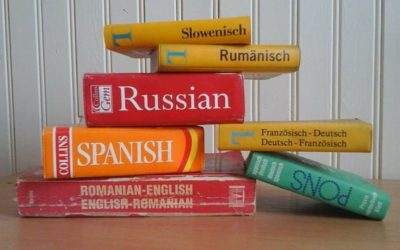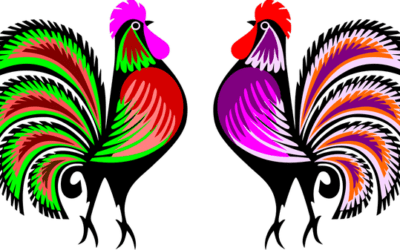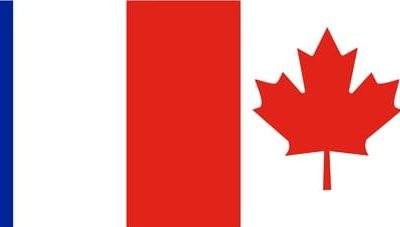Read our Translation Blog
Get the latest fun and facts from the language industry with our blog!
Need advice on website translation and localization?
Browse our ONLINE SHOP for ebooks on how to translate a website!
LingoStar’s Blog 
Welcome to LingoStar’s blog! On this page, you can find a lot of interesting and useful information about the translation industry. Explore topics on website translation and localization and how successful localization can influence your business to help your company grow and go global.
Language Blog Topics
On this blog, you can also learn about professional translators and interpreters, multilingual search engine optimization (SEO), the importance of socializing and networking and translators’ professional ethics. Quite often we write posts about the languages of the world, other cultures, and their traditions. Not only do translators convert texts from a source language to a target language, but they also help people communicate with each other, help establish international contacts, and are often prominent figures in the social, economic, and political life. Lastly, of course, we want you to have fun, so on our blog, you can find many posts that will entertain you and, hopefully, make you smile!
We hope you enjoy our blog and discover a lot of interesting things!
10 Amazing Latin American Movies
Latin American Films A movie portrays how someone perceives the world, and in turn, educates us about the culture of the place where it was made. Lately, we have been hearing a lot about Latin American cinematography and the Latin American way of doing cinema. Full of political and religious content combined with a colloquial approach, Latin American movies typically focus on the strong religious ties of their people or criticism towards politics and politicians. However, these are not the only topics that may be addressed. In just one Latin American movie, you can find comedy, horror, drama, mystery, and so on. Clearly, the way they tell their stories is unique; they know how to make you laugh, how to be serious, how to give you the creeps, and certainly how to make you cry. In this top ten you will find Latin American movies worth watching that represent their respective countries in their own unique way. Let’s take a tour! 1. Frida (2002, Mexico): This movie tells the story of Frida Kahlo, a Mexican artist whose life was full of tragedy and beauty. Due to the use of colour and music as cinematographic elements it introduces you to Mexican society, culture, traditions, and values. Frida will take you to Mexico while entertaining you with a really great plot. 2. Maria Full of Grace / María, llena eres de gracia (2004, Colombia): The tragic journey of a young woman with money problems. She takes the first opportunity to earn and ends up involved in the Colombian drug traffic industry, gaining many more problems than when she began. Do you want to... read moreChallenges that come up when translating, can anyone handle them?
Challenges for translators, why translation can’t be done by just anyone In a past blog we tried to define the essence of the word “translation” in simple terms. At its core, “translation” is the transfer of a message from one language to another, but there is much more to the process. It is a highly demanding activity and translators face many challenges. Translating requires a lot of research and preparation. To start, we have a pair of languages, one the “source” text and one the “target” text. The source is the language of the original text and the target is the one you translate it to. Now we can begin… Challenges in translation First it is important to know that there is more than just one type of translation. Each type attends to the different communicative needs that we have in our lives. Among the types of translation that exist, we have: legal translation, academic translation, scientific translation, audiovisual translation, technical translation, and so on. Understanding the type of translation is the first challenge in translating a written text. To get a proper translation by translator contact us. The second challenge is figuring out the purpose of the translated text. It affects the format, vocabulary, word choice, and level of research required in order to to be prepared. This leads us to the third challenge, the topic of the written translation. This is one of the biggest hurdles of the job. Depending on the topic, the vocabulary and format of the text will vary. There are other exceptional cases, for example the translation of jokes or idioms. These can... read moreThe Word on the Street Festival
The Word on the Street Festival During the month of September, Canada is the host of The Word on the Street Festival. It celebrates and promotes Canadian literature, reading, writing, and literacy. This festival occurred for the first time on September 30, 1990 in Toronto. Attendance was surprisingly good and the event quickly became an important event nation-wide. Nowadays it is celebrated in Halifax, Toronto, Saskatoon, and Lethbridge, and there is also a preview event held in Kitchener. It is the largest literary festival in Canada. Get further information here. Who attends this Festival? Every year, authors, publishers and readers from all over Canada and other countries come to The Word on the Street. The festival provides opportunities for authors to promote their work, sign books, do readings, and attend meet and greets. It is also an opportunity for people to meet their favorite authors, buy new books, and celebrate literature and literacy. The festival attracts people of all ages and interests. There, you can find different types of books and magazines of any genre, such as poetry and fiction. This is a win-win situation for authors, readers and publishers. What makes this Festival so amazing? Besides the obvious attraction, the books, you will also find a bunch of activities that will catch your attention and entertain you. You can attend authors’ events such as book signings, giveaways, and conferences. You can also enjoy presentations as part of the Spoken Word Showcase that includes a Q&A at the end to get to know the poets and their stories. On the other hand, if you are interested in buying, there... read moreThe 10 best books that will awake your interest in reading
10 books that will awake your interest in reading! Can books compete with today’s technology? With today’s modern technology, people seem to have lost interest in reading… well, books anyway. When it comes to books it is necessary to have more than a good story to catch readers. The books in this list have a good story, exceptional characters, a fluid narrative, plus that something special, in some cases magical, that it takes to make you read until the very end and wish there were more pages. Here is a list of ten books that can awake your interest in reading no matter how old or young you are. 1. Harry Potter (the series) by J.K. Rowling It is almost 100% certain that you have, at least, heard of Harry Potter. If you’ve heard that Harry Potter is just for kids, and believed it, rethink that. This book series is full of magic and values which will surprise you. Rowling weaves an amazing plot and you will marvel at the depth of the fictional world she has created. 2. Anne of Green Gables by Lucy Maud Montgomery The story of a dreamy girl that teaches us that with a good attitude, a smile, and a little bit of imagination, we can face anything that may befall us. 3. Digital Fortress by Dan Brown Brown has a talent for keeping you on the edge of your chair, reading as fast as you can to find out what’s going to happen with his characters, and this book is no exception. A fictional story full of adventures and technology that... read moreWorld ‘s 10 most popular places to visit on Instagram
Popular places in the world on Instagram Summer is here and it’s time for you to book your holidays. If you want to make your followers jealous, here are the 10 most popular places in the world on Instagram. Let’s be honest, when we are on holidays we try to take our best photos to send it to family, friends and colleagues and show them how lucky we are to be travelling. Even if you are not a real photographer, taking a good photo in any of these beautiful places would be easy! Are you ready to hit “like”? Disneyland, California, United States Disneyland, California, United States This is the classic dream spot where everyone including children and adults should go at least once. It’s no surprise that Mickey wins first place! Eiffel Tower, Paris, France Eiffel Tower, Paris, France The quintessential romantic place. Paris and the beautiful Lady Eiffel are a dream come true! Walt Disney World, Orlando, United States Walt Disney World, Orlando, United States Another Walt Disney Park in the top three. The house of Mickey is definitely the place to go! South Beach, Miami, United States South Beach, Miami, United States Nicknamed SoBe, South Beach is a trendy destination that mixes beach, party and art deco. Berlin Wall, Berlin, Germany Berlin Wall, Berlin, Germany This is a very emotional place. The Berlin Wall was built to separate East and West during the WW2 and was destroyed in 1980. Las Vegas Strip, Las Vegas, United States Las Vegas Strip, Las Vegas, United States Look at all those lights! The Vegas Strip is home to the craziest... read moreCanada Day : Celebrate Canada’s 150th Birthday With Us!
What Is Canada Day? Happy Birthday Canada! Happy birthday Canada! Did you know that Canada is 150 years old this year? Want to celebrate this huge event? Let’s learn about this nation and how to celebrate Canada Day! 150 Years for Canada To start, a little bit of history. If you are a proud Canadian you can skip this part as you probably already know your fabulous country’s story, but for those of you who are curious, here are some interesting facts that will help you understand why Canada Day is so important! If you think that 150 years is very young for a country then you are right! Of course, in reality, the country is much older. For thousands of years prior to European colonization, indigenous peoples inhabited what is now known as Canada. Beginning in the 16th century, British and French claims were made on the area, with the colony of Canada first being established by the French in 1535 during Jacques Cartier’s second voyage to New France. Due to various conflicts, Great Britain gained and lost territories within British North America until the late 18th century when it was left with what comprises Canada’s today geographically. On July 1, 1867 occurred the unification of Canada giving birth to the Canada we all know today. Since this date, Canada Day is the national day of celebration. A federal statutory holiday, Canadians celebrate the anniversary of the July 1, 1867 enactment of the Constitution which united three separate colonies, Nova Scotia, and New Brunswick into a single Dominion within the British Empire called Canada. Originally called Dominion Day, the... read moreThe Cannes International Film Festival : It’s birth and growth
Cannes Film Festival The Cannes Film Festival is a yearly event which showcases new films and documentaries from all over the world. It is celebrated in Cannes, France, and is attended by international producers, actors, actresses and stars. This year was the 70th anniversary celebration. The festival has had a big impact not only in the film industry, but also in other areas like the media and translation industries. The place where all stories meet The Cannes Film Festival represents an opportunity for filmmakers from all over the world to meet in one place and to exchange their cultures and experiences. The festival is a window to the world, it gives the opportunity to filmmakers to showcase their country’s customs and traditions on a big screen watched by a wide audience. One of the most important aspects of the festival is the principle of equality, not that we are all the same, but that even with our differences in culture, history and language, we are all equal members of the world community. Cannes Film Festival provides an opportunity for all countries to establish their own cinema and in turn, celebrate the culture and history of their respective countries. Two industries join hands For the translation industry, films and documentaries represent a huge field of work and an interesting part of the job. The Cannes Film Festival provides amazing opportunities in translation, subtitling, and dubbing into a full range of languages. It is a win-win situation in that both translators and filmmakers benefit and profit from this activity. If a film is available in a large range of languages, it has... read moreA Cock Story by a Russian Translator
A Cock Story Learning a new language is always a challenge, especially when words can mean two completely different things. Here is a “cock” story by one of our Russian translators about an experience he had while learning English in college. My lifelong passion for languages began in the Soviet high school, where I was, according to my English teacher, the best student in her three-year experience. That didn’t necessarily mean I could string two words together by myself, but I would diligently do my homework and vigorously raise my hand during her classes. Little did she know that my linguistic zeal was driven, more than anything, by my being innocently mesmerized with her inner and outer beauty. More with the latter than the former. The Learning Two years on, in the summer of 1991, the Soviet Union broke apart, and I was now a college freshman in the newly independent Uzbekistan. I was studying to be a translator/interpreter between English, Russian and Uzbek. Those were not the easiest times to study a foreign language: information and materials were scarce, there was no access to communication with native speakers and, of course, no such thing as the Internet. My faculty had a modest library where you could find most classic novels and a very limited number of audio recordings spoken by BBC newscasters and such. Needless to say, there was no taking them home, so I would spend endless hours in the library practicing my listening and comprehension. One thing I had no way of knowing at the time was the fact that my decades-old textbooks and dictionaries presented... read moreBilingualism: all the reasons and advantages for becoming bilingual
What are the advantages of bilingualism? “Bilingualism is the ability to speak or write fluently in two languages.” – The Canadian Encyclopedia In Canada, being bilingual is more common than in other countries due to its two official languages: French and English. Canadian instructions on food packaging at the supermarket, and signs around the city, are generally written in both languages. However, speaking, writing, thinking or dreaming in more than one language could also be enhanced thanks to the brain’s constant activity. So what are the real advantages of being bilingual? Boosts cognitive performance Many scientists who study linguistic development talk about “the bilingual advantage”. When a bilingual person has to solve a conflict, he/she will think in two languages. This flexes the cognitive muscles. This in turn improves the working memory and one’s ability to switch attention from one thing to another. Multi-tasking The most specialized scientist in bilingualism is Dr. Ellen Bialystok, Rotman Research Institute Associate Scientist, Professor of Psychology at Toronto’s York University, and Officer of the Order of Canada since 2016. Her research shows that bilinguals are better than monolinguals at tasks that require controlling several goals in mind at once. Multi-tasking and avoiding distraction during tasks are such examples. Read more about Dr. Bialystok’s research here. Improves linguistic skills When you are already bilingual, it’s easier to become multilingual. Your brain already knows how to learn new words and switch quickly between different languages. Scientists have proven that bilinguals have better listening and communication skills than monolinguals. Protects against Alzheimer’s disease Between 2008 and 2010, Dr. Ellen Bialystok wrote a research paper on “the... read moreBirthday Song across the world and their variations
Birthday Song Have you ever wondered how your birthday would be celebrated in other countries? What birthday song would be sang? For example, which song do you sing if you are in a Spanish-speaking country? Well, each Spanish-speaking country has a different birthday song. The birthday celebration itself is more or less the same everywhere: gifts, party, food, and of course, a birthday cake! And along with a birthday cake there is always a birthday song and candles! The Song The song is important and represents the main purpose of the party: to celebrate the birthday boy or girl. Even though customs in Spanish-speaking countries are pretty similar, the song will vary. Replacing the “Happy Birthday To You” song characteristic of Anglo-Saxon countries, the Spanish countries range from “Las Mañanitas” in Spain and Mexico to a 10-minute song in Venezuela, and each song carries unique cultural differences. Most of the songs are full of good wishes and blessings, and the way they are sung also reflects the country’s culture and customs. For example, in Mexico the guests sing “Las Mañanitas” and then the birthday boy or girl bites the cake and pushes his or her face into the cake as a joke. In Venezuela, guests sing “Ay que noche tan preciosa”, which can last for up to 10 minutes because people say funny things and they repeat parts several times to make fun of the birthday boy or girl. In Paraguay, the guests slap the back of the birthday boy or girl with their hands at the end of the song. Whereas in Chile, the birthday boy or girl... read moreBritish Accents | Dialects and Accents in the UK
Accents in the UK Are you from a non-English-speaking country and want to move to the United Kingdom? If you are and you have decided to go, you need to be aware of all the different British accents. Check out our article about how you can recognize British accents and get familiar with the different dialects and accents in the UK. English as a second language I am from Spain and in my country, when we are in school, we learn English as a second language. The English we learn is the general English (Received Pronunciation English) and many of us believe that this type of accent is the only one that exists in the UK. Then when we move to the UK for work or study, we realize that we were wrong. Depending on where you go, people speak with many different English accents. Check out our English voiceover services. We work with voiceover artists who record native British, American and Canadian accents. In the south, you will find the Received Pronunciation English, Cockney, estuary English and West Country. Further out, you find the Midlands English and Welsh English. And in the north, you will find the Northern England English, Geordie accent and Scottish English accent. Received Pronunciation English Currently I am living in the north, in Leeds to be precise, and I would like to point out the differences between the Northern English and the Received Pronunciation English. The Northern England English is spoken in the area of Manchester, Leeds, York and Liverpool. The features of this accent are: Non-rhoticity, except in some rural areas. The diphthong in words... read moreThe Best Translation Apps for Travelers Around the World
The Best Translation Apps For Travelers While travelling, understanding people, directions, signs or restaurant menus is not easy if you do not really speak the local language. To obtain quick help in these cases we often use translation apps on our smartphones. Here are the best translation apps selected by LingoStar to ensure you easy travel. Google Translate With over 90 languages in its database, Google Translate is the translation app from the Californian giant Google. The app gives you several ways to enter a word or a phrase: typing, drawing with your finger, speaking through the microphone, or using your camera to take a photo of what you want to translate. The app is free and can be downloaded on Android and iOS; you can also use the browser version on your computer. Here for iOS download Here for Android download Pros: You can easily switch between languages Ability to use your camera for translations History of your translations Cons: Can be inaccurate with long texts or phrases Some languages are not very accurate iTranslate iTranslate is one of the easiest-to-use translation apps on the market due to the simplicity of its interface. Like Google Translate, the app has over 90 languages in its database and you can type or speak to get your translation. In its premium version ($5) you can type in long texts, use voice commands, and get rid of ads. A plus is that you can share your translation with somebody else via text message or social media. The app is available on Android and iOS in free and premium versions. Here for iOS... read moreCanada and France: Cultural Differences
Canada and France: are there many differences? We love to discover new cultures around the world. Here are a few cultural differences between France and Canada about the language they speak, the food they like and the sport they play or watch. Differences in Languages The two main languages spoken in Canada are English and Canadian French. English is by far the most spoken language in Canada with 58% of Canadians speaking English and only 22% speaking French. Canadian French is a variation of the French language from France, originating from the 18th century. In France, French is the official language and many people know some English but less are fluent. Differences in Food Canada has a large variety of dishes from East to West. Most of them are based on meat, cheese, and potatoes. First of all, poutine is one of the most famous dishes in Canada and especially in Quebec. It is a delicious meal made with French fries, gravy and cheese curds. In addition, British Columbia salmon, and Alberta beef and bacon are also very much appreciated in Canada. Coincidentally, meat, cheese and potatoes are also much appreciated in French cuisine. For example, Raclette and Tartiflette are typical French dishes composed of potatoes, bacon and cheese. On the sweet side, Canada is famous for its maple syrup and beavertails. Nevertheless, in France, pastries and bakery goods are also very typical with the classic baguette, croissant and pain au chocolat. Differences in Sport The national sport in Canada is ice hockey. However, most American sports, like football and basketball, are also represented in Canada. The National Hockey... read moreTop Travel Tips for 2017 – An International Language Tour
The best travel tips according to Lonely Planet for 2017. Travel in 2017 and learn languages while traveling. Discover Canada, Colombia, Dominica or Nepal.
read moreTranslation Blog and News
LingoStar has been a language services provider in Canada, the USA, and Europe for more than a decade. We are proud to say that we cooperate with professional translators, interpreters, and other language specialists worldwide and work with over 100 language pairs. If you are looking for a reliable translation company, contact LingoStar! We are always ready to help you with your projects and documentation. Get a free quote online.














